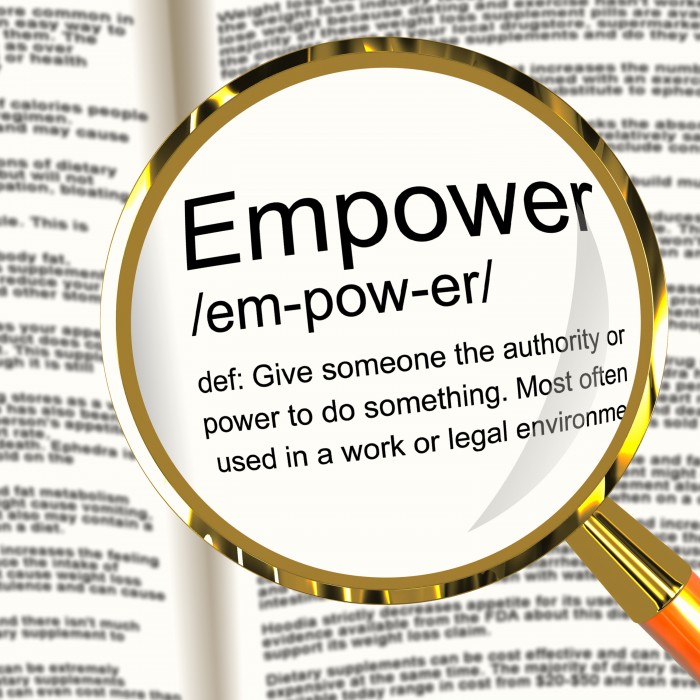Empowerment As An Agent of Change
 Empowerment is a commonly used buzzword. Everyone is for it but find it difficult to achieve.
Empowerment is a commonly used buzzword. Everyone is for it but find it difficult to achieve.
In his thought provoking book, Deep Change, Robert Quinn defines two opposite orientations to empowerment in most organizations.
Mechanistic – Starts at the top and involves clarity, delegation, control and accountability
Organic – Starts with the individual and involves initiative, risk, growth and teamwork
Quinn found that most of us want bosses to practice the organic model of empowerment, yet we prefer our subordinates take the mechanistic approach.
The Four Dimensions of Empowerment
Several years ago, Gretchen Spreitzer, a professor at the University of Southern California, did an extensive study on empowerment and was able to identify empirically four dimensions of empowerment.
1. A Sense of Meaning: Their work was important to them
2. A Sense of Impact: They feel confident about their ability to do the work
3. A Sense of Competence: They feel free to choose how to do the work
4. A Sense of Self-determination: They feel they have influence in their organization
These four dimensions define empowerment.
The Four Levers of Empowerment
Spreitzer’s research also identified four organizational conditions that lead to an empowering environment:
1. Clear vision and challenge.
2. Openness and teamwork.
3. Discipline and control.
4. Support and a sense of security.
These four conditions are found in all empowered environments. They lead to an empowering environment but not necessarily to empowerment.
We All Have as Much Power as We Really Want
Quinn says when we feel powerless in our jobs the temptation is to wait for someone higher in the chain of command (i.e., the pastor) to come along and force change.
But, he argues organizational change doesn’t have to come just from the top down…….personal change can and does create organizational change.
Quinn says that in fact real empowerment is not granted by the organization, nor can empowerment always be delegated. All the organization can consistently do is create the conditions for an empowering environment where people will take the initiative to empower themselves.
We all would like to be more empowered but few of us are willing to pay the price of personal change that true empowerment requires.
In that sense each of us has exactly as much power as we really want or are willing to initiate the changes required to achieve.
The Key Questions That Lead to Personal Empowerment
Over the years I have become a strong believer in the fact the external world can be changed by altering our internal world, and Scripture seems to support that God works consistently from “the inside out.”
You may find the questions below uncomfortable because they shift the responsibility for empowerment from someone else to ourselves.
They require the most important skill to triumph in the face of change: to “know thyself.”
1. A Sense of Meaning: How can I increase my own sense of meaning, worth and alignment with God’s will and the mission, vision, values and goals of the church?
2. A Sense of Impact: How is God calling me to increase my own sense of contribution, impact and influence within my ministry and in God’s Kingdom?
3. A Sense of Competence: How can I increase my own sense of competence and confidence in my God-given abilities and gifts to perform with excellence the ministry to which I am called?
4. A Sense of Self-determination: Under the leadership of the Holy Spirit, how can I increase my own sense of freedom and choice of how I minister?
As you write your answers to each question keep in mind that change in our churches and organizations cannot occur unless we accept the pain and discipline of personal change.
Having experienced significant change in ourselves, we have the capacity to bring change to the systems, organizations and people around us.
Posted on September 23, 2014




















